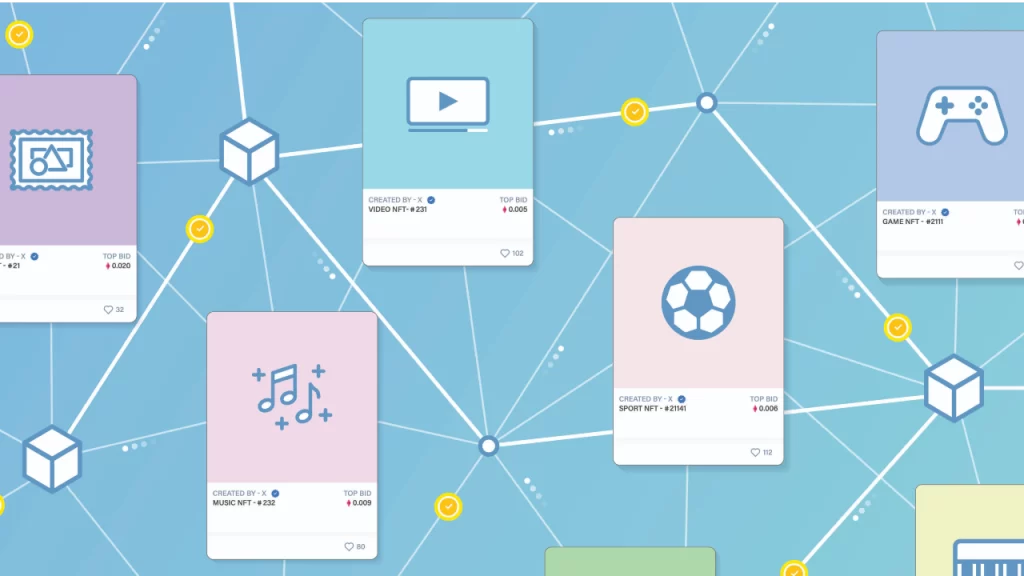Web3 is more than just another trend of this year – it promises to return ownership of data back to end-users.
As services won’t be housed within one silo, their security can also be reduced since they won’t be susceptible to hackers or authoritarian governments.
Security
The initial vision of the Internet was to provide a neutral network, accessible and inclusive to everyone. Over time, however, its evolution has become more controlled by a handful of transnational, US-based corporations and organizations who now largely oversee its evolution.
Decentralized Web, also known as Web 3.0, is an emerging movement to bring back its original vision for the internet. Services created without needing a central server will function without interference from anyone outside their direct control are key components.
These services based on blockchain technology tend to be safer from hacking and data breaches compared to centralized resources, making them less vulnerable to hacking or data breaches. Blockchain also makes encryption simple for data protection against unwanted access by unwanted users; though not infallible; hackers still clone wallets for money theft purposes from users; nevertheless these issues are being addressed as developers look into ways of strengthening Decentralized Web security.
Data ownership
Decentralized Web technology utilizes distributed storage methods that store information across an ecosystem of computers instead of one central repository, thus decreasing the risks of server crashes, hackers or authoritarian governments censoring websites or opinions; more backups in case of data loss; and privacy control by encrypting files so only individuals with permission to access them.
The decentralized Internet can also be used to reduce the power of technology giants. At present, Alphabet (Google), Amazon and Apple all hold key positions within these industries; with Meta (formerly Facebook) overseeing social media and ad revenue.
Decentralized Internet can give consumers more power, as it will enable them to create and control their own apps that intermediate speech online. This will give people more choice while making it harder for tech companies to censor or manipulate content online. Furthermore, decentralizing will enable more users to participate in gig economy services like Uber, Airbnb and TikTok and earn income as independent contractors.
Convenience
The DWeb is being developed as a means to decouple connectivity, data sharing and app development from massive tech companies. Projects like Databox and Zeronet allow users to have greater control of their own data locally rather than trusting giant siloed community platforms that may not always act in their best interest.
The new web will be more secure, connecting devices and systems without relying on central servers – eliminating non-value adding middlemen and risk of server failure, while giving people full ownership over their data.
Decentralizing networks makes it more challenging to enforce cyber regulations and punish those engaging in unlawful behavior like hacking, data manipulation or hate speech – potentially hindering some users but opening the way for new business models and governance structures to emerge – but their potential is truly exciting.
Privacy
Even when companies like Apple, Google and Amazon have good intentions in gathering your personal data for their own gain, their incentive may still be to gather and use that information for themselves. Web 3.0 changes this dynamic by eliminating gatekeepers and giving users more freedom when it comes to choosing services they participate in while protecting their privacy with distributed networks that ensure data remains private, secure and untampered-with.
Decentralized networks that utilize blockchain technologies provide an unprecedented level of security that’s simply unavailable through traditional centralized systems. They have been proven to successfully withstand government censorship while mitigating damages caused by attacks such as DDoS attacks. Users also remain accessing their data even in cases of service provider closure or destruction.
Already available are various decentralized apps geared toward finance (including cryptocurrency), the arts and collectibles, gaming, and technology. These dapps – or “decentralized applications” – store user data in a peer-to-peer network using blockchain public ledger technology, the same mechanism behind Bitcoin.












More Stories
Exploring the Impact of Web3 on the Future of the Internet
How to Choose the Best Home Internet Plans in NYC
Unveiling the Latest Tech Gadgets and Devices